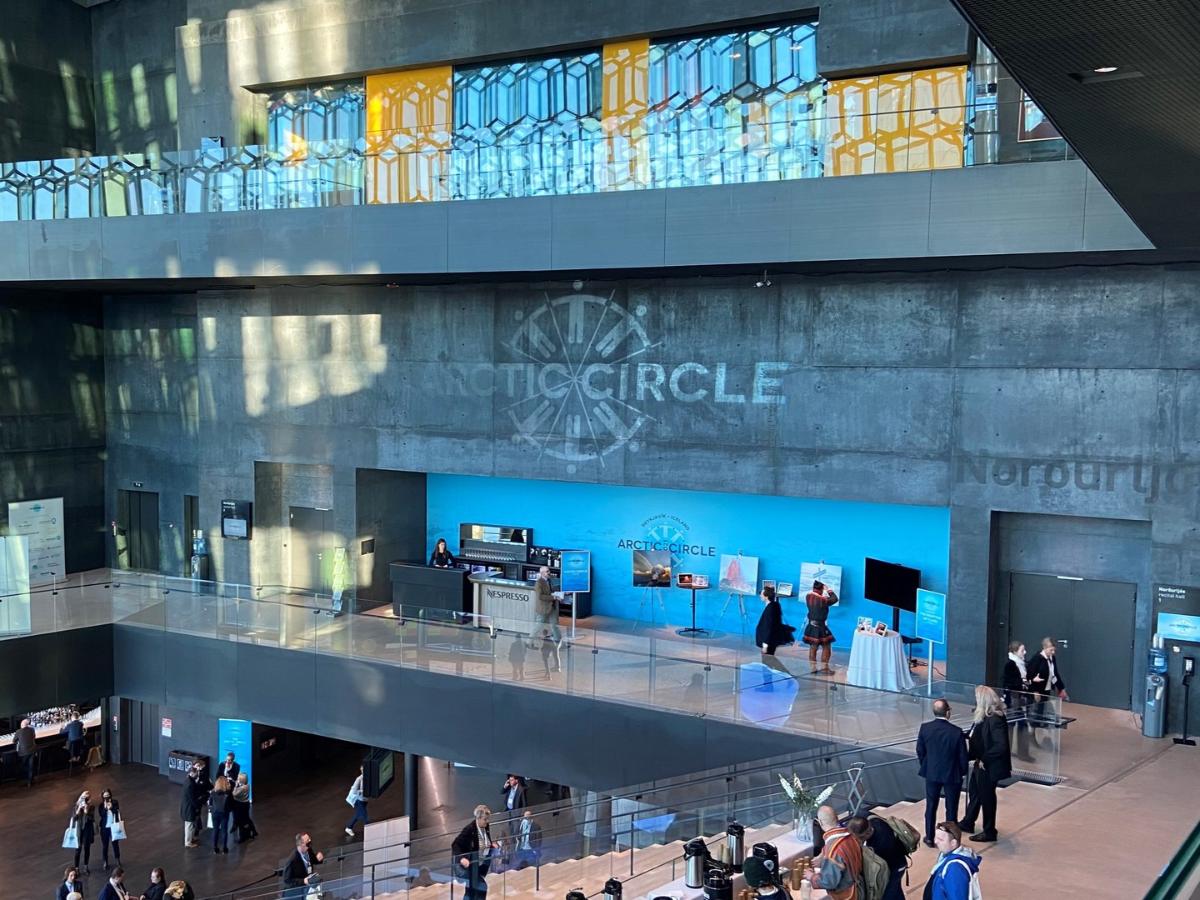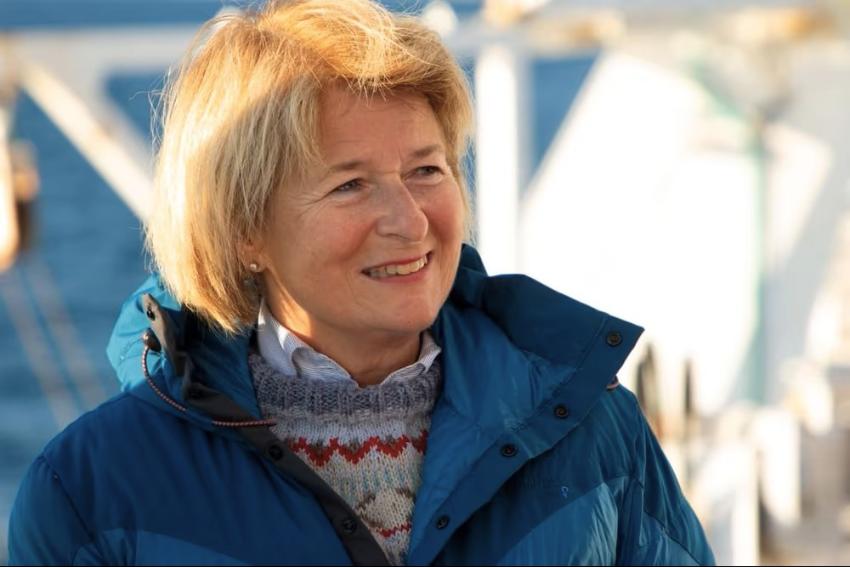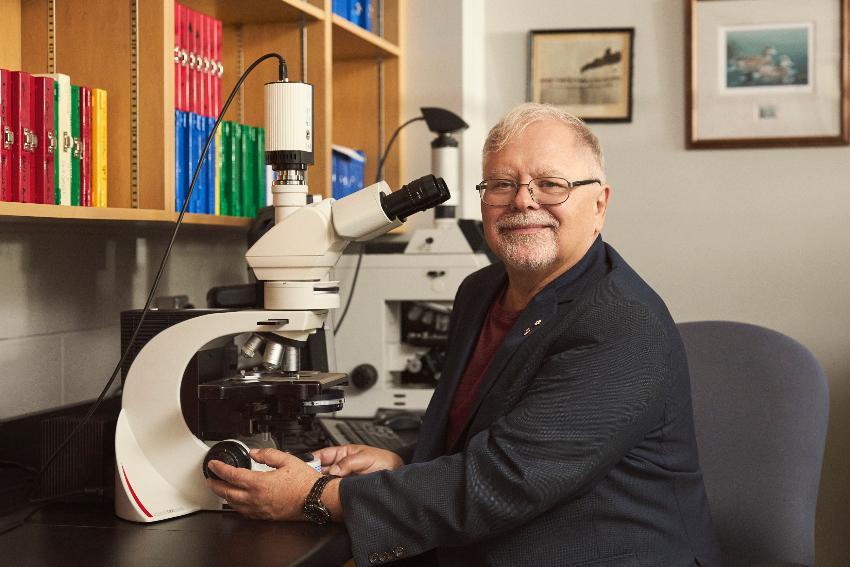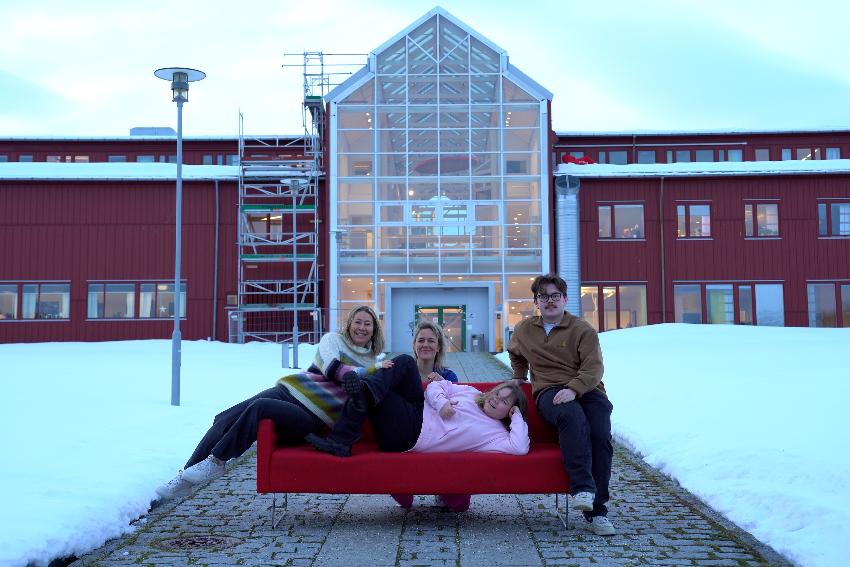This is what UiT contributes to the Arctic Circle conference
Next week, a UiT delegation will travel to Iceland to promote international research projects that contribute to increasing our knowledge about the Arctic Ocean, climate change, and geopolitics.

Arctic Circle Assembly, held in Reykjavík on October 17-19, is the world's largest annual international conference on the Arctic. It gathers 2000 participants from 70 countries, and hosts 200 debates and events.
The conference is an important meeting place for actors at an international level, within politics, business, organizational life, and academia. The debates during the conference focus on the challenges faced by the Arctic region.
A delegation from UiT will be present in Reykjavik. UiT contributes as a knowledge provider to the Arctic Council, with the environmental monitoring programme COAT, and as a partner in the university alliance Arctic Five and a member of the international network UArctic.
The delegation will present UiT's participation in projects and research programmes such as One Ocean Expedition, The International Polar Year, and Polhavet 2050.
In several panel debates, UiT will also highlight how students and fellows from UiT have contributed to international projects like The Arctic Academy for Social and Environmental Leadership (ARCADE) and International Graduate Student Research Cohort (IGSRC).
During the conference, UArctic will present the recipient The Frederik Paulsen Arctic Academic Action Award, for which Associate Professor at UiT, Alexander Tøsdal Tveit, is nominated.
Participants in the UiT-delegation:
- Jan-Gunnar Winther, Pro-rector for research and development, UiT
- Dag Rune Olsen, Rector, UiT
- Jeanette Hammer Andersen, Professor, The Norwegian College of Fishery Science and CEO and Co-Founder, Kinsea Lead Discovery AS
- Rasmus Gjedssø Bertelsen, Professor of Northern Studies & Barents Chair in Politics
- Claudia Cheng, PhD Research Fellow, Arctic Centre for Sustainable Energy (ARC)
- Aileen Aseron Espiritu, researcher, The Barents Institute
- Gunhild Hoogensen Gjørv, Professor, UiT Centre for Peace Studies
- Peter Haugseth, Assistant Professor/Ph.D candidate, HSL Faculty / Project Arctic 2030
- Tone Huse, Department of Archaeology, History, Religious Studies and Theology
- Per-Kåre Jacobsen, Assistant Professor, School of Business and Economics / Project Arctic 2030
- Laurien de Korte, PhD candidate, Department of Technology and Safety / ARCADE
- Berit Kristoffersen, Associate Professor, Department of Social Sciences
- Marc Lanteigne, Professor, Department of Social Sciences
- Lea Lipphardt, master student (IGSRC)
- Ekaterina Mikhailova, Associate Professor, The Barents Institute
- Larry Ibrahim Mohammed, PhD candidate, Department of Social Sciences
- Maria Das Neves, Associate Professor, Norwegian Centre for the Law of the Sea
- Yara Nieuwenhuis, Student (International Graduate Student Research Cohort)
- Torjer Olsen, Professor, Centre for Sami Studies
- Katrine Opheim, Master student ( ARCADE)
- Malgorzata Smieszek-Rice, Postdoctoral Researcher, The Norwegian College of Fishery Science
- Alexander Tøsdal Tveit, Associate Professor, Department of Arctic and Marine Biology (Leader of the CECO lab)
Thematic overview of sessions involving UiT researchers:
NB: You can find more details about who is participating in specific panel debates in the programme.
17 October
09:00 – 09:55: New Arctic Frontiers of speculation, extractivism and justice
18 October
09:35 - 10:30: Towards the international polar year: What new knowledge is needed for Arctic security and governance?
09:35-10:30: The European Union and the world in 2024: New input for the EU’s Arctic policy.
14:50 - 15:45: Advancing Arctic research cooperation and diplomacy through the ICARP IV
16:00 – 16:55: Arcade: New solutions to social and environmental challenges in the Arctic
17:10 – 18:05: Gender and security in a divided Arctic
18:20 – 19:15: Behind the scenes of the Arctic climate impact assessment (ACIA) success story.
18:20 – 19:15: Diversified in unity: optimizing observer engagement in the Arctic Council
18:20 – 19:15: The finalists of the Frederik Paulsen Arctic Academic Action Award.
20:15 – 21:10: Gender in Arctic Ocean Spaces: The need for visibility
19 October
09:00 – 09:55: Arctic military insecurities: critical reflections
09:00 – 09:55: Adapting Arctic research: Responding to geopolitical and technological shifts
10:05 – 11:00: For the community and the world: Lessons from Arctic energy transition projects.
10:05 – 11:00: Truth and reconciliation in the Arctic: The role of research and knowledge.
11:20 – 12:15: The poles, and interdisciplinary tool for advanced training in science diplomacy.
11:20 – 12:15: Education partnerships: Engage and prepare the next generation.
11:20 – 12:15: Canadian perspectives on Arctic security
Kortnytt fra International Cooperation Section
-
Fiskeri- og havbruksvitenskap - bachelor
Varighet: 3 År -
Fiskeri- og havbruksvitenskap - master
Varighet: 2 År -
Akvamedisin - master
Varighet: 5 År -
Bioteknologi - bachelor
Varighet: 3 År -
Arkeologi - master
Varighet: 2 År -
Peace and Conflict Transformation - master
Varighet: 2 År -
Computer Science - master
Varighet: 2 År -
Geosciences - master
Varighet: 2 År -
Biology - master
Varighet: 2 År -
Technology and Safety - master
Varighet: 2 År -
Computational chemistry - master
Varighet: 2 År -
Law of the Sea - master
Varighet: 3 Semestre -
Biologi - bachelor
Varighet: 3 År -
Nordisk - årsstudium
Varighet: 1 År -
Historie - årsstudium
Varighet: 1 År -
Luftfartsfag - bachelor
Varighet: 3 År -
Pedagogikk - bachelor
Varighet: 3 År -
Arkeologi - bachelor
Varighet: 3 År -
Pedagogikk - master
Varighet: 2 År -
Informatikk, datamaskinsystemer - bachelor
Varighet: 3 År -
Informatikk, sivilingeniør - master
Varighet: 5 År -
Allmenn litteraturvitenskap - årsstudium
Varighet: 1 År -
Likestilling og kjønn - årsstudium
Varighet: 1 År -
Historie - bachelor
Varighet: 3 År -
Geovitenskap- bachelor
Varighet: 3 År -
Kjemi - bachelor
Varighet: 3 År -
Samfunnssikkerhet - bachelor
Varighet: 3 År -
Samfunnssikkerhet - master
Varighet: 2 År -
Kunst - bachelor
Varighet: 3 År -
Kunsthistorie - master
Varighet: 2 År -
Farmasi - master
Varighet: 2 År -
Religionsvitenskap - årsstudium
Varighet: 1 År -
Romfysikk, sivilingeniør - master
Varighet: 5 År -
Klima og miljøovervåkning, sivilingeniør - master
Varighet: 5 År -
Sosialantropologi - bachelor
Varighet: 3 År -
Bærekraftig teknologi, ingeniør - bachelor
Varighet: 3 År -
Historie - master
Varighet: 2 År -
Filosofi - bachelor
Varighet: 3 År -
Anvendt fysikk og matematikk, sivilingeniør - master
Varighet: 5 År -
Barnevernsarbeid - master
Varighet: 2 År -
Forfatterstudium 2 - årsstudium
Varighet: 1 År -
Fine Art - master
Varighet: 2 År -
Barnevern - bachelor
Varighet: 3 År -
Arctic Nature Guide - one year programme
Varighet: 1 År -
Sosialt arbeid - bachelor
Varighet: 3 År -
Arktisk friluftsliv og naturguiding - bachelor
Varighet: 3 År -
Arktisk friluftsliv - årsstudium
Varighet: 1 År -
Grunnskolelærerutdanning for 1.-7. trinn - master
Varighet: 5 År -
Kunsthistorie - årsstudium
Varighet: 1 År -
Governance and Entrepreneurship in Northern and Indigenous Areas - master
Varighet: 4 År


